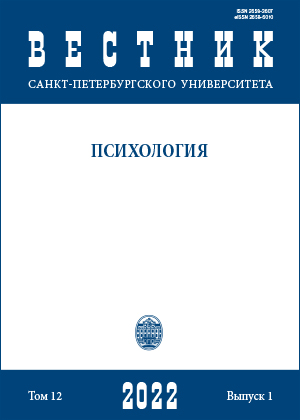The scientific and life path of the outstanding comparative psychologist N.A.Tikh
DOI:
https://doi.org/10.21638/spbu16.2022.106Abstract
The article explores the life and scientific work of Nina Aleksandrovna Tikh (1905–1983), an outstanding Russian zoopsychologist and comparative psychologist, and professor at Leningrad (St Petersburg) State University in 1951–1975. She followed V. A.Wagner, was a student of V. M.Borovsky, and was a colleague of N. Yu. Voitonis, N. N.Ladygina-Kots, G. Z.Roginsky, and M. F.Nesturkh. She made a significant contribution to the development of comparative psychology and zoopsychology. Tikh conducted observations and experiments on animals and birds; she published about fifty works, of which four are monographs. Tikh’s main areas of interest were the origin and development of human consciousness, thinking, speech, and social behavior. Most of all, she was engaged in the least developed problem of anthropogenesis: the history of the transformation of the herd life of human ancestors into the social life of people. For sixteen years Tikh studied the prehistory of social life, observing the herd life of apes in the Sukhumi Monkey Nursery, the medical and biological station of the USSR Academy of Medical Sciences. Tikh concluded that living together in a herd would not have advantages over individual life without mutual help. The materials of these observations, their analysis, and an attempt to reconstruct the development of the hominid community from the herd life of animal human ancestors were included in the final monograph Prehistory of Society, which is a fundamental scientific work.
Keywords:
comparative psychology, zoopsychology, anthropology, Sukhumi Monkey Nursery, primates, hominids
Downloads
References
References
Downloads
Published
How to Cite
Issue
Section
License
Articles of "Vestnik of Saint Petersburg University. Psychology" are open access distributed under the terms of the License Agreement with Saint Petersburg State University, which permits to the authors unrestricted distribution and self-archiving free of charge.




